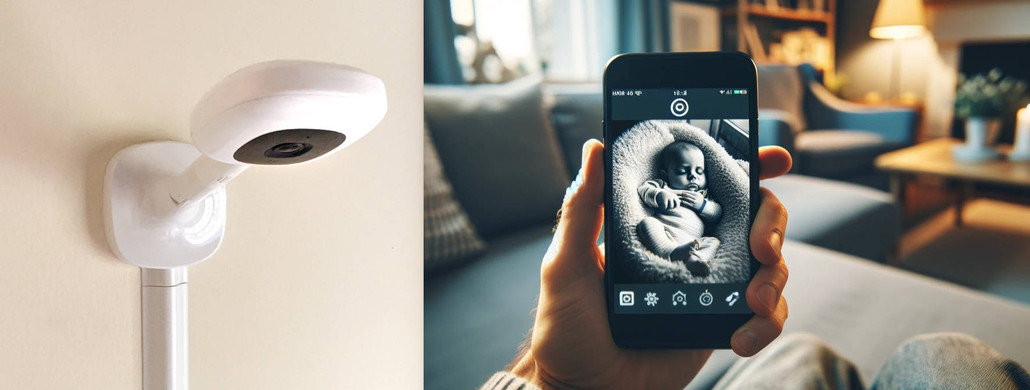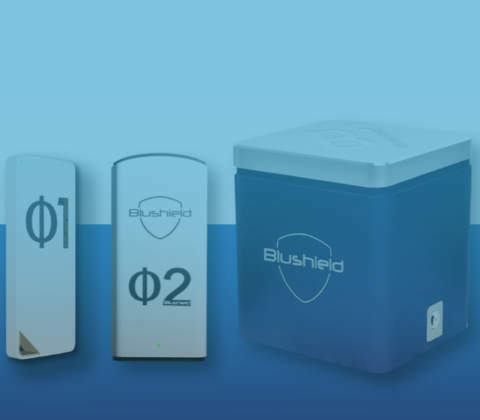EMF Radiation From Baby Monitors: Potential Effects On Your Baby's Health
20th May 2024
In today's digital age, baby monitors have become essential tools for parents, providing peace of mind by keeping an ear and eye on their little ones. However, with convenience comes concern, particularly about the electromagnetic field (EMF) radiation emitted by these devices. Here we'll discuss the potential impacts of EMF radiation from baby monitors on infants' health and offers practical tips to minimize exposure.
What is EMF Radiation?
EMF radiation is a type of energy emitted by electronic devices, including baby monitors. It can be classified into two categories:
- Non-ionizing radiation: Found in everyday devices like cell phones, Wi-Fi routers, and baby monitors.
- Ionizing radiation: Found in X-rays and certain medical equipment, known to be harmful in high doses.
Baby monitors emit non-ionizing radiation, which is generally considered less harmful than ionizing radiation. However, concerns remain about its prolonged exposure, especially for vulnerable populations like infants.
How Do Baby Monitors Emit EMF Radiation?
Baby monitors, especially digital and wireless ones, operate on radio frequencies (RF) similar to those used by Wi-Fi and Bluetooth devices. These frequencies enable the transmission of audio and video signals from the baby's room to the parent unit. The continuous emission of these signals contributes to EMF radiation in the home environment.
Potential Effects of EMF Radiation on Babies
While research on the long-term effects of EMF radiation from baby monitors is ongoing, some studies suggest potential risks associated with prolonged exposure, particularly for infants whose bodies and brains are still developing.
1. Sleep Disruption
Some parents report that their babies experience disturbed sleep patterns when baby monitors are placed too close to the crib. EMF radiation might interfere with the natural sleep rhythms of infants, leading to restlessness and poor sleep quality.
2. Developmental Concerns
Although conclusive evidence is still lacking, some scientists hypothesize that continuous exposure to EMF radiation could impact brain development in infants. The theory is that EMF exposure might affect cellular processes critical for healthy brain growth.
3. Increased Sensitivity
Infants may be more sensitive to EMF radiation compared to adults due to their smaller size and developing bodies. Their thinner skulls and more absorbent tissues might make them more susceptible to the effects of EMF exposure.
Tips to Minimize EMF Exposure from Baby Monitors
Given the potential risks, it’s crucial for parents to take steps to reduce their baby's exposure to EMF radiation from baby monitors. Here are some practical tips:
1. Maintain Distance
Keep the baby monitor at least 1 meter away from the crib. The intensity of EMF radiation decreases with distance.
2. Use Wired Monitors
Consider using analog baby monitors, which emit lower levels of EMF radiation compared to digital and wireless models.
3. Turn Off When Not in Use
Switch off the baby monitor when your baby is not in the crib, such as during playtime or when you're in the same room, this will reduce the ambient EMF generated in the household.
4. Opt for Low-EMF Models
Some baby monitors are specifically designed to emit lower levels of EMF radiation. Look for models that advertise low EMF emissions.
5. Utilize a Blushield Device In Your Home
Blushield devices emit frequencies that mimic nature, our bodies, including infants, resonate better with these frequencies; as our bodies tune in to the Blushield frequency, they tune out of the harmful EMF frequency.
Summary
While baby monitors provide invaluable reassurance for parents, it's essential to be aware of the potential EMF radiation risks they pose. By understanding these risks and taking simple precautions, you can protect your baby’s health while still enjoying the benefits of modern monitoring technology. Remember, using a Blushield device will allow you to maintain a safe environment for your little one, while being able to benefit from the conveniences that a baby monitor provides.
FAQs
- Q1: Are all baby monitors equally harmful in terms of EMF radiation?
- No, analog monitors typically emit lower levels of EMF radiation compared to digital and wireless models.
- Q2: Can EMF radiation from baby monitors cause long-term health issues in babies?
- The long-term effects are still under research. However, minimizing exposure is a precautionary measure recommended by health experts.
- Q3: How far should I place the baby monitor from the crib?
- It’s best to keep the baby monitor at least 3 feet (1 meter) away from the crib to reduce EMF exposure.
- Q4: Are there any baby monitors designed to emit low EMF radiation?
- Yes, some baby monitors are specifically designed to emit lower levels of EMF radiation. Look for those advertised as low-EMF models.
- Q5: Does turning off Wi-Fi at night help reduce EMF exposure?
- Yes, turning off Wi-Fi and other wireless devices at night can help reduce overall EMF exposure in your home.


